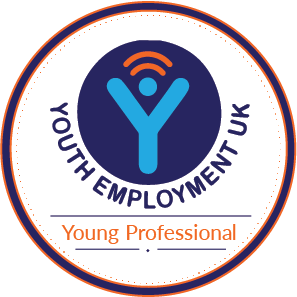What is Organisation and Why is It Important?
Organisation is a self-management skill and one of five key skills you can develop as a Young Professional.
Strong organisational skills are demonstrated by planning your time and your workload effectively. Meeting deadlines will show potential employers that you are good at organisation, which is vital to do well in your career.
From time management to prioritising tasks – and even having a tidy desk – being organised will help you improve your employability and also your life. An organised person will know what they need to do and when, where their pen is, and if it’s their turn to bring biscuits into the office. They make lists, have a calendar or diary, and are able to manage themselves in all areas of life and work.
As well as ensuring you don’t forget your lunch or turn up late to an important meeting, organisation will make you look more professional and help you get your job done more effectively. Employers really value strong organisational skills, as they know you will be efficient and do the work on time. Being organised also shows how much you care about your job; arriving every day, being on time, and remembering everything you need is really important.
Developing and Demonstrating Organisational Skills.
There are a lot of ways to develop your organisational skills; from keeping a calendar and writing all your appointments in it, to making lists of what you need to get done each day and giving yourself a time to do each task. Try to give yourself a goal or a few goals for the week, then break them down into smaller steps to do each day. Tick them off as you go, and by the end of the week you’ll be closer to your goals even if you haven’t completed them.
There are a lot of websites, apps, and books about organisation and productivity, so it’s easy to do some research yourself and find some ideas that work for you.
It’s fine to say that you’re ‘organised and able to manage yourself’, but employers want you to prove it. Think of some concrete examples of your organising in action; if you juggle a part time job with your exams, playing football and learning a language you have great evidence of how organised you are. Showing you can handle the pressure when things get hectic is really important, and will put you head and shoulders above other candidates who don’t.
Remember to use the STARR model to talk about your skills.
Your actions will also speak volumes here: make sure you turn up on time (or slightly early!) to an interview, dress well, and bring anything you’ve been asked to with you. By showing you can organise your own life and take things seriously you let an employer know you can manage yourself and work in a timely and professional manner.
SEE MORE ON SELF MANAGEMENT






Become a Young Professional
Aged 14-24? Build your confidence in the five key life and work skills when you become a Young Professional.
- Free to join
- Develop your skills in communication, teamwork, problem solving, self management and self belief
- Add ‘Young Professional’ to your CV and LinkedIn profile
- Guaranteed job interviews from participating employers if you meet requirements.









